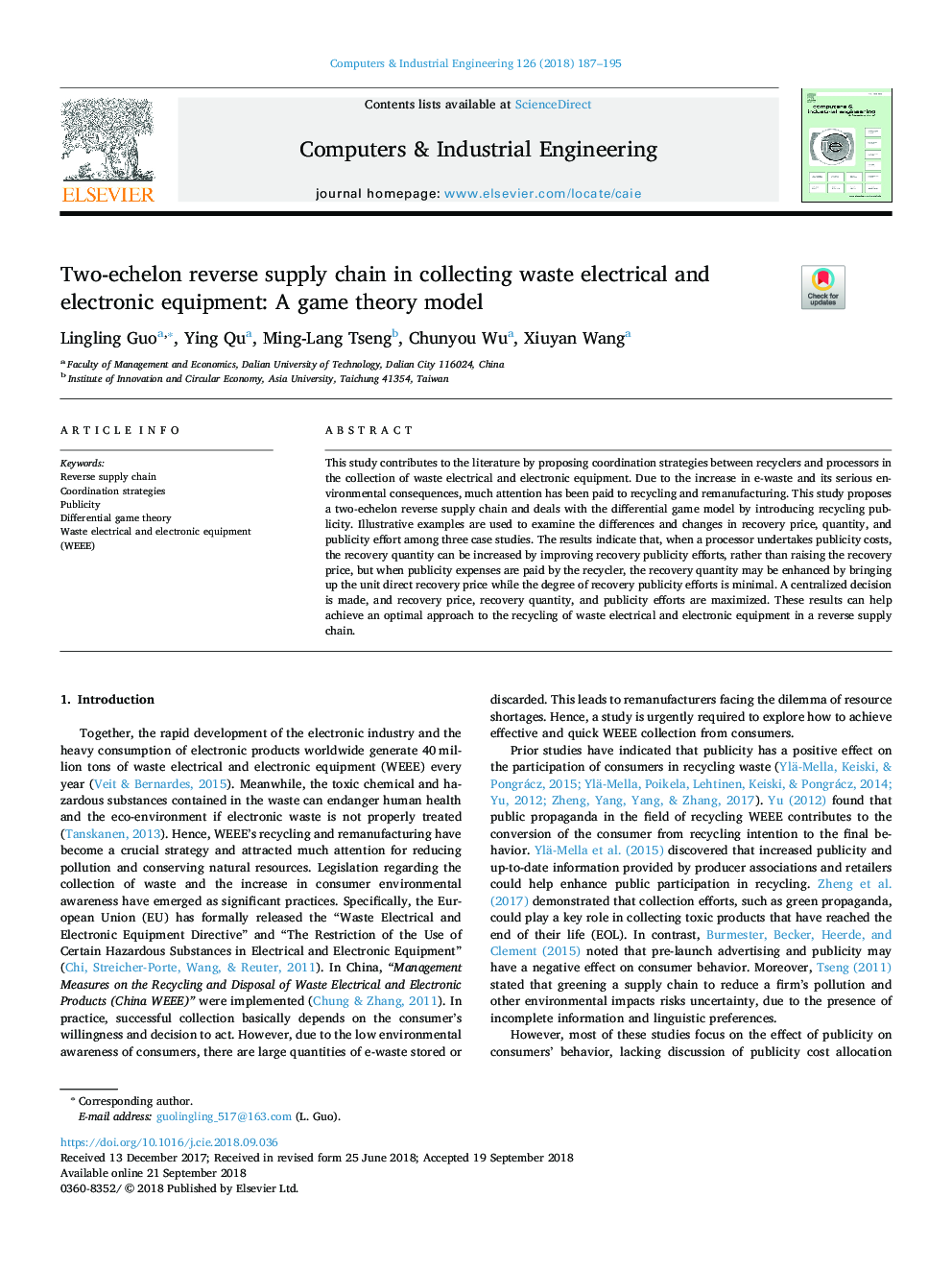| Article ID | Journal | Published Year | Pages | File Type |
|---|---|---|---|---|
| 11027460 | Computers & Industrial Engineering | 2018 | 9 Pages |
Abstract
This study contributes to the literature by proposing coordination strategies between recyclers and processors in the collection of waste electrical and electronic equipment. Due to the increase in e-waste and its serious environmental consequences, much attention has been paid to recycling and remanufacturing. This study proposes a two-echelon reverse supply chain and deals with the differential game model by introducing recycling publicity. Illustrative examples are used to examine the differences and changes in recovery price, quantity, and publicity effort among three case studies. The results indicate that, when a processor undertakes publicity costs, the recovery quantity can be increased by improving recovery publicity efforts, rather than raising the recovery price, but when publicity expenses are paid by the recycler, the recovery quantity may be enhanced by bringing up the unit direct recovery price while the degree of recovery publicity efforts is minimal. A centralized decision is made, and recovery price, recovery quantity, and publicity efforts are maximized. These results can help achieve an optimal approach to the recycling of waste electrical and electronic equipment in a reverse supply chain.
Keywords
Related Topics
Physical Sciences and Engineering
Engineering
Industrial and Manufacturing Engineering
Authors
Lingling Guo, Ying Qu, Ming-Lang Tseng, Chunyou Wu, Xiuyan Wang,
